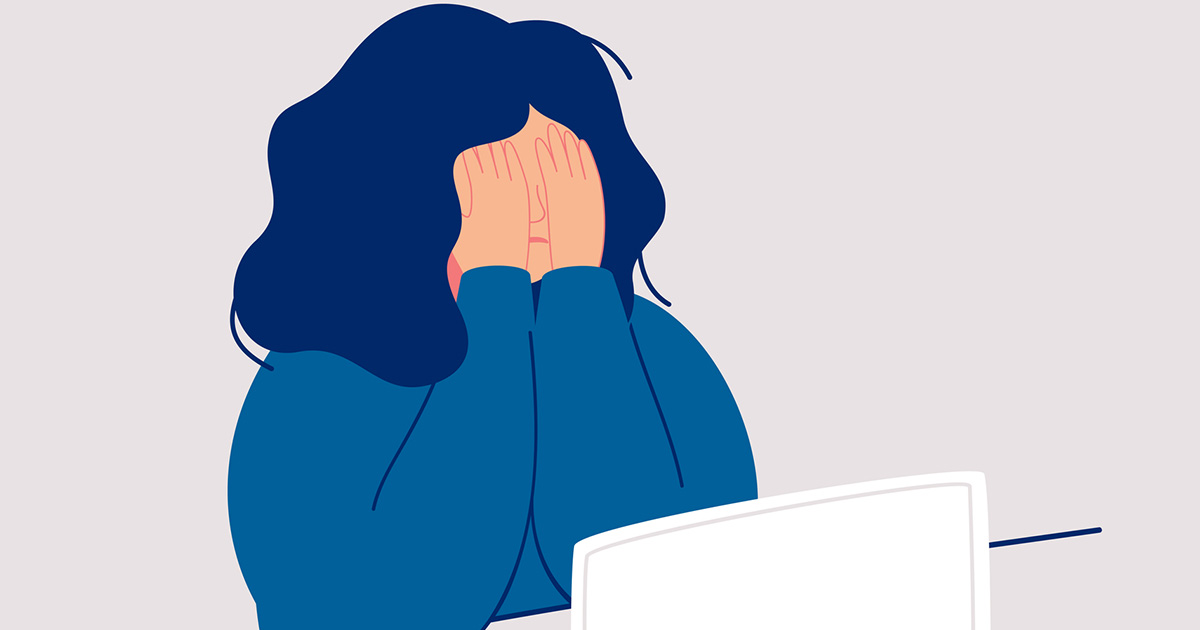
Telehealth for Addiction Recovery – Does It Really Work?
Photo from Getty Images
Originally Posted On: https://www.marylandrecovery.com/blog/addiction-recovery-telehealth
COVID-19 caused several significant changes in the way we do things. One major change was the way we interact with doctors and other medical professionals. Many doctors made the switch to telehealth to help keep patients safe. This transition expanded to all areas of medical help, including mental health services and addiction treatment. This switch has proved to have both pros and cons for those who are suffering from addiction. Getting help through virtual connections is different, raising the question as to whether it can be just as helpful as in-person treatment and therapy.
Pros and Cons of Telehealth for Addiction
Addiction recovery is a long road. One of the most common issues a person in recovery faces is staying sober while dealing with isolation and loneliness. This felt like a common theme across the board for most individuals trying to make it through the worst aspects of the pandemic.
When the stay-at-home order began, there was a big increase in alcohol sales, with online sales. While many restrictions have been lifted, there has still been an increase in alcohol dependency.[1]
This uptick in common use made popular in social media sites created a deeper challenge for those already struggling with addiction. As adjustments were made, telehealth rose as an alternative to in-person group sessions and one-on-one therapy sessions. A few years in, we now get a better sense of the pros and cons of telehealth for addiction.
Benefits of Telehealth for Addiction Recovery
Telehealth allows drug rehab facilities and other healthcare centers to administer the care and support that those in recovery need to stay on track and on the right path. Through telehealth, providers can offer advice, monitoring, therapy sessions, interventions, and, if necessary, admissions. Providers and patients alike have noticed significant benefits from using telehealth services.
Increases Ease of Access
 Photo from Getty Images
Photo from Getty Images
Telehealth services provide those in recovery with an easy way to connect with the support they need. All a person needs is a good internet connection, a phone, laptop, computer, or tablet, and the necessary platform your healthcare provider uses. Most healthcare providers use popular communication apps that can be accessed for free such as Zoom or Skype. This provides a lot of freedom to connect with your healthcare provider outside of having to meet at a specific location.
Greater Access for All
Telehealth can connect people from anywhere at any time. This has proven to be a great option for those who live in more rural areas. Studies have shown a positive impact for telehealth services reaching individuals in rural areas who might otherwise have to travel to receive the care they need.[2] Access is key in supporting individuals on their path to recovery.
Telehealth also provides greater access for those who may have physical limitations, making it difficult to travel and get to one central location for care. The ability to access the care you need from home has proved immensely helpful to those in rural areas or who have physical limitations.
Cuts Costs
Another great benefit of telehealth is that it can cut many of the costs associated with having to go to meetings and treatments in person. Travel can be a major factor for individuals from rural areas getting the treatment they need. Even small commutes use up gas, and you may have to pay to park, depending on the location of your doctor.
There is also childcare to consider, especially for individuals who may not have the additional support at home. Telehealth helps prevent the need to take time off work, which can also factor into expenses that not everyone can sacrifice. Having to take time off work, find childcare, or take care of travel expenses can impact the ability to stay consistent. With telehealth, there is no reason not to remain consistent.
Fewer No-Shows
Telehealth provides ease of access that helps create a situation where there is less likelihood of missing an appointment. Travel, expenses, and work tend to be the biggest excuses for missing appointments, and Telehealth removes these factors from consideration, leaving little excuses for people to miss their appointments. Missing appointments can jeopardize the success of a person’s recovery, so having easy access with little chance of interference can make a huge difference.
Supports Structure and Accountability
Structure plays an important role in addiction recovery. The pandemic created a whirlwind for everyone. Schedules and structure felt thrown out the window for months, which can greatly impact someone’s path of recovery. Telehealth helps preserve the schedule and structure that proves helpful for those on the path of recovery. Telehealth also provides doctors and care professionals a means to keep track of a person’s progress, even if they can’t come to in-person appointments.
Accountability is important in keeping a person in recovery on track. Even though you aren’t meeting physically, there is still an expectation to show up. Studies continue to show that the wide acceptance by doctors to utilize telehealth due to the pandemic has shown numerous benefits in overall accessibility and the appeal of seeking support and treatment through this method.[3]
Cons of Telehealth Services
While telehealth has many perceived benefits for addiction recovery, there are also some disadvantages of using telehealth for addiction recovery services. The pandemic put telehealth services on a fast track, and it has only been a few years since it rose as a popular option. This means that time will only tell what real place telehealth has for addiction recovery. More research is needed to ensure that these services provide the true care and attention needed for long-term success. While there are several benefits to telehealth for addiction treatment, there are also some disadvantages.
Not for Everyone
Addiction recovery looks different for everyone. Some individuals need more support than others. For many in recovery, there is a focus to take it a day at a time or even an hour at a time. Telehealth may not provide the support necessary for those at high risk of relapse or who may be in unstable living conditions.
Telehealth relies heavily on the person’s ability to be present and focused during their appointments. It may feel impersonal to some who benefit from physically being near the person they are speaking with. A lot of this relies on both the provider and patient being able to communicate the same way as they would in person, such as maintaining eye contact and using body language that expresses engagement.
Difficulty of Access
 Photo from Getty Images
Photo from Getty Images
What can be seen as a benefit for many can also be a disadvantage for others. Telehealth services rely on technology, which isn’t necessarily accessible for everyone. Access to a smartphone, tablet, or computer isn’t necessarily common for everyone. You also have to have a good, consistent connection to Wi-Fi or data. While many applications may seem easy to use, there is still a chance of not having the technical literacy to really benefit from this type of appointment. For those who don’t utilize technology on a regular basis, telehealth services can feel overwhelming.
Complications at Home
Not having to go to a specific location for care, therapy, or meetings can feel appealing to many individuals going through addiction recovery. However, having to remain home can feel unappealing to individuals who may not be able to achieve the same level of security or privacy at home.[4]
Recovering from addiction can be surrounded by a lot of stigmas that keep individuals from being as open as they can about their journey. Some recovering addicts don’t even share what they are going through with their families. This can pose an additional challenge for a person to truly open up if they can’t get the privacy they need. Many individuals going through recovery prefer the ability to leave their homes to seek treatment in a place that is structured to be private and secluded.
Costs
Telehealth can cut costs with childcare, travel, and missed work, but it can end up costing more for some through the actual appointments. Telehealth truly exploded as an option during Covid-19. This means that many insurance companies had to make quick assessments and judgments as to whether telehealth appointments would be covered the same way in-person appointments are.
Depending on what specific insurance companies decide, certain telehealth services might not be covered through insurance, making the cost completely out of pocket. This can be an expense that not everyone can afford. When working through addiction, a lapse in support could result in a lapse of sobriety.
Lack of Personal Connection
A large part of addiction recovery can be sessions with other individuals also going through recovery, such as AA meetings. While these resources are still available online through platforms such as Zoom, it can still pose a challenge to developing real personal connections.[5] When meeting online, people can choose to mute their videos or microphones. There is also a greater challenge of a flow of conversation due to people getting cut off while speaking, even unintentionally. This could prove frustrating for some.
Recovering from addiction is a long journey that benefits greatly from support.[6] Covid-19 shook up our lives on many different levels. It changed the way doctors, therapists, and support groups could meet. Telehealth went from a solution used on rare occasions to the main source of assistance in just a few short years.
Deciding On Telehealth for Addiction Treatment
 Photo from Getty Images
Photo from Getty Images
In general, there are a lot of great benefits of using telehealth. It provides a means to seek help from the comfort of your home, making it easier to attend your appointments and cutting down on costs associated with traveling. With that said, some value the ability to leave their home for a specifically structured place to provide private and secure help. Please refer to our helpful addiction recovery resources.
